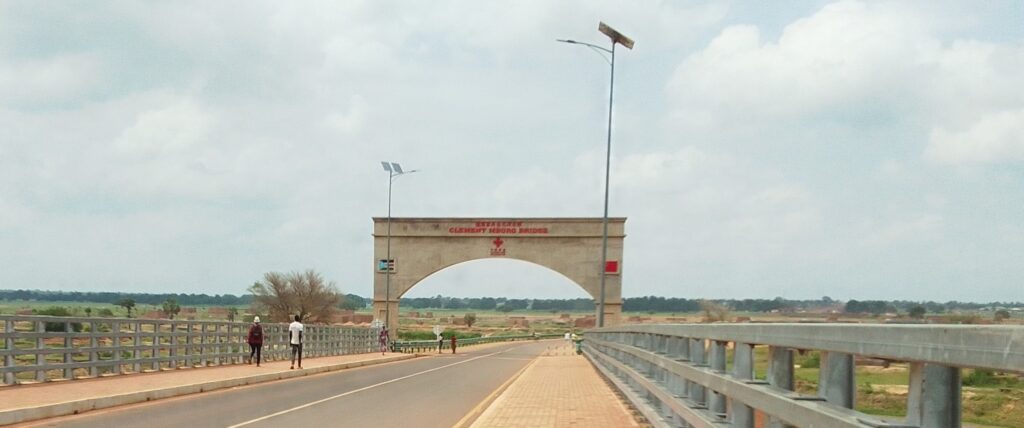The chairperson of the Western Bahr el Ghazal State Chamber of Commerce has called on the national government to expeditiously compensate individuals whose shops were demolished during the construction of Clement Mboro Bridge in Wau.
In 2021, the Government of China and the Government of the Republic of South Sudan signed an agreement to construct a bridge on the Jur River to replace the old bridge. In the same year when the construction started, several shops along the road that were affected by the project were razed with an agreement that the affected owners would be compensated to a collective tune of US$5 million.
However, no payment has ever been processed even after the inauguration of the Clement Mboro Bridge three months ago, prompting the chairperson of the state’s Chamber of Commerce, Wol Charles, to call on the national government to fulfil its end of the agreement.
“We welcomed the new bridge and want development, but it was inaugurated without us being informed, yet we incurred losses. We had 43 shops demolished to pave the way for the construction of the bridge, and we had an agreement with the government to compensate us,” he said. “The 43 shops were a source of income for various families, and since the demolition, the compensation agreement was not implemented. The shop owners were saying that the bridge will not be open until they receive their compensation.”
“Some of the shops were occupied by their owners while others were rented by traders, and since they were demolished, some of the people lost their capital and have since been forced to abandon business,” Wol added.
He highlighted that the bride and road did not even affect areas where the shops were destroyed. He urged the government to immediately pay the affected people.
Meanwhile, Awath Hassen Achuil, one of the affected traders who lost four shops, told Radio Tamazuj that the whole exercise was inhumane as they were not allowed to remove some of their building materials.
“I had four shops that were demolished, and we were not even allowed to pick an iron sheet or piece of timber because we were ordered out unlawfully. First of all, we were not told about the nature or amount of compensation, and the government was so aggressive. I was one of the people who said I will not remove a single iron sheet because at the end, this country has a law,” he said. “Since the demolition, we have become victims and have not received any compensation for 5 years now. When we go to the ministers of roads and bridges and housing, lands, and public utilities, they just say they did not receive the money to compensate us.
“I am calling on the state governor to compensate those of us who lost our properties,” Achuil added.
When contacted, the state minister for roads and bridges, Julio Bensncio Mongo, confirmed that the traders presented their complaint to him and that the delay is from the national government.
“They have presented their written complaint to us; they need cash compensation, and some need plots,” he explained. “This has taken time. We wrote to the national ministry of roads and bridges in Juba, it was presented to the president and passed by the council of ministers, and the money has been approved, but the national ministry of finance is saying they do not have cash.”
Mongo said some traders have already been compensated with plots of land, while the remaining fifteen people await cash compensation.
“We have tried our best together with the ministry of housing to solve their problems, and some people have been allocated land in Abdalla Tip market,” he disclosed. “The remaining fifteen people want money. They came to my office and said they are planning to go to court, but I told them that we are in touch with the national government to solve their case.”




